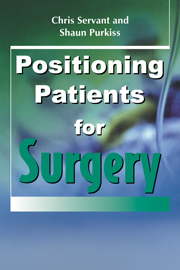Medicolegal considerations
Published online by Cambridge University Press: 06 December 2010
Summary
“I will follow that system of regimen which, according to my ability and judgement, I consider for the benefit of my patients, and abstain from whatever is deleterious and mischievous.”
(The Oath of Hippocrates, fifth century bc)“Doctors must practise good standards of clinical care and ensure that patients are not put at unnecessary risk.”
(General Medical Council: Good Medical Practice, 1998)General considerations
The operating theatre is a hazardous environment for all persons. When a patient is given a general anaesthetic they lose all ability to protect and fend for themselves. As a consequence, all staff within the operating department must take over this protective function, and they have a responsibility to ensure that every patient is safe. Good clinical practice is required to ensure that the safety of all manoeuvres performed in theatre (such as a transfer or the achievement of a surgical position) is constantly appraised and audited to maintain good standards.
The surgeon is ultimately responsible for patient safety in this environment, and is the usual focus for medicolegal issues when things go wrong. The achievement of an adequate and safe surgical position to perform an operation is only one small part of their overall responsibility. The surgeon usually takes an active role in positioning a patient as it can facilitate the operation. It is appropriate to outline the surgeon's other responsibilities to a particular patient undergoing surgery.
- Type
- Chapter
- Information
- Positioning Patients for Surgery , pp. 3 - 5Publisher: Cambridge University PressPrint publication year: 2009



